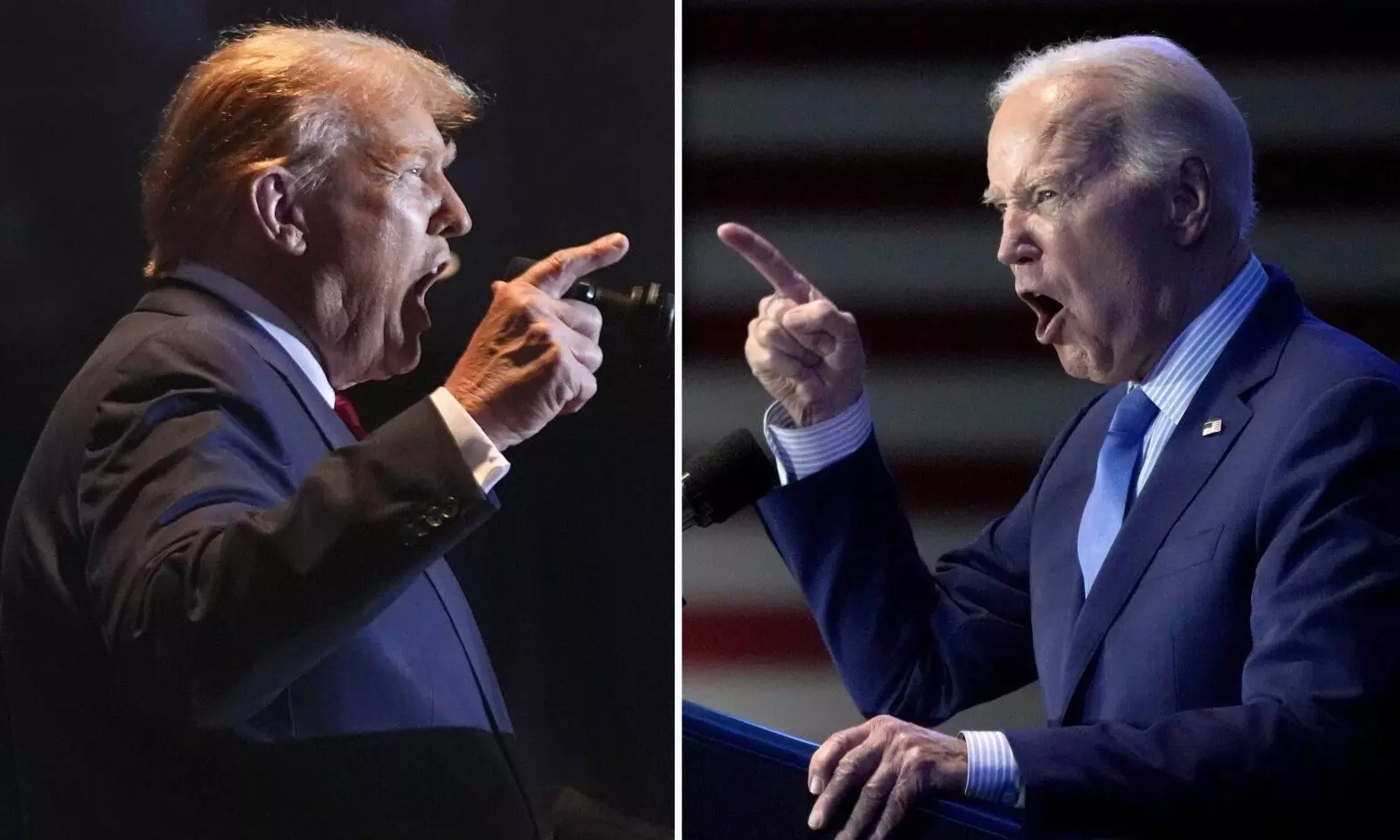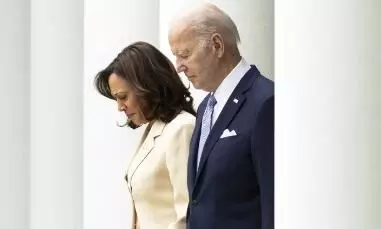
When Kamala Harris joins the Presidential race
text_fieldsWith current President Joe Biden withdrawing from the Democratic Party nomination for the US presidential election and announcing his support for Vice President Kamala Harris, the race for the leadership of the superpower is moving to another level. The Republican Party has already nominated former President Donald Trump. With the official nomination of Kamala Harris expected at the convention of the Democrats on the 19th of next month, the American presidential battle picture will become clear. Based on current indicators, Kamala Harris is most likely to win the Democratic nomination. The process of selecting each party's candidate for the US elections takes several months. For this long, Joe Biden has remained steadfast in his candidature, pursuing the endorsement of party elements in several states before his candidacy was formally announced at the party convention. The question why his withdrawal is so late is less pertinent than why he didn’t quit earlier. He had already lost the mental health or agility to lead the nation.
Biden, who took office at 78, with the distinction of being the oldest to become US president, had been marked for his gaffes and fumbled easily attributed to his age. The Democratic Party leaders themselves had tried to dissuade him from contesting but to no avail. Biden who appeared in one TV debate after another against Trump looked particularly weak. By the time he announced the final decision this past Sunday, Trump had gained the upper hand. Observers believe that the July 13 shooting at Trump and his words and behaviour after escaping from it are increasing support for him.
Although the United States is no longer the dominant power in the world today, its policies on certain issues are still relevant today. Kamala Harris's views on the Ukraine crisis and the Palestinian-Israeli conflict are not very different from those of Biden. However, Kamala has shown a little more compassion towards the sufferings of the Palestinians. Born to an Indian-origin mother and a Jamaican father, Kamala has the distinction of being the first black woman candidate in American history and had an active Jewish presence in her upbringing. Her partner is also from the Jewish community. Even so, many read that none of that has led her to become strongly Israel-biased.
Kamala, like Biden, has argued that Israel has a right to self-defence in the Hamas-Israel conflict. It was only later that she responded to the suffering in Gaza. However, in a sense, it must be said that Israel is not the main issue in the American elections today. There are other important internal issues like inflation and immigration issues. It is observed that there are changes in the positions of Kamala Harris on issues related to India after becoming the Vice President. Even while acknowledging her Indian heritage and a place in her heart for India when she was a California governor and potential candidate, she had criticized the abrogation of Article 370 of the Constitution in 2019, which granted special status to Jammu and Kashmir, However, after taking office in 2021, Kamala as Biden’s Vice President met Indian Prime Minister Narendra Modi and praised India's development of a Covid-19 vaccine. The emphasis was later on such friendship. US policy is not determined by which party or individual wins. It is based on the interests of the Zionist lobby, which dominates the ruling centres there. It needs to be seen that this is not the Jewish community, which is only about 2.5 per cent of the American population, but that this is a matter of the Zionist lobby. Since the creation of the Zionist state in 1948 until today, no administration under any president has stepped up to reverse Israel's policies of occupation and genocide. Relatively speaking, there may have been fluctuations in relation to Israel during certain years. Moreover, Israel is necessary in exercising muscle power and security guarantees over the Arab countries that dominate the oil reserves. Even if Kamala Harris wins the presidency after defeating Trump, only slight differences in foreign policies are possible from these equations.


























